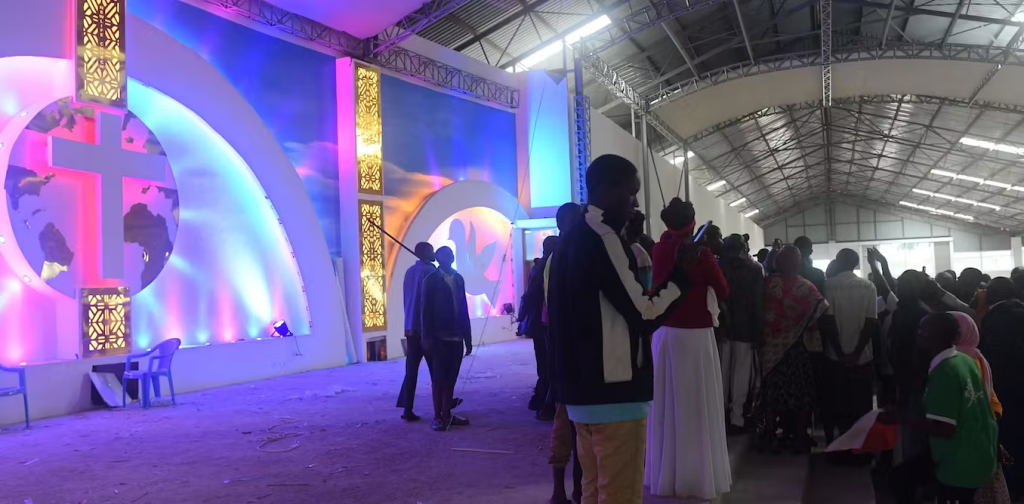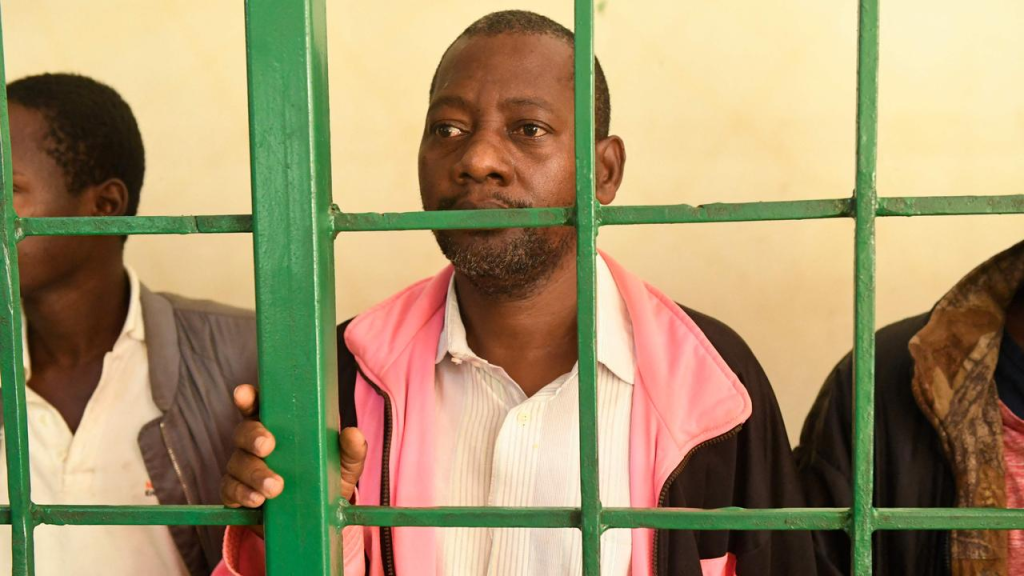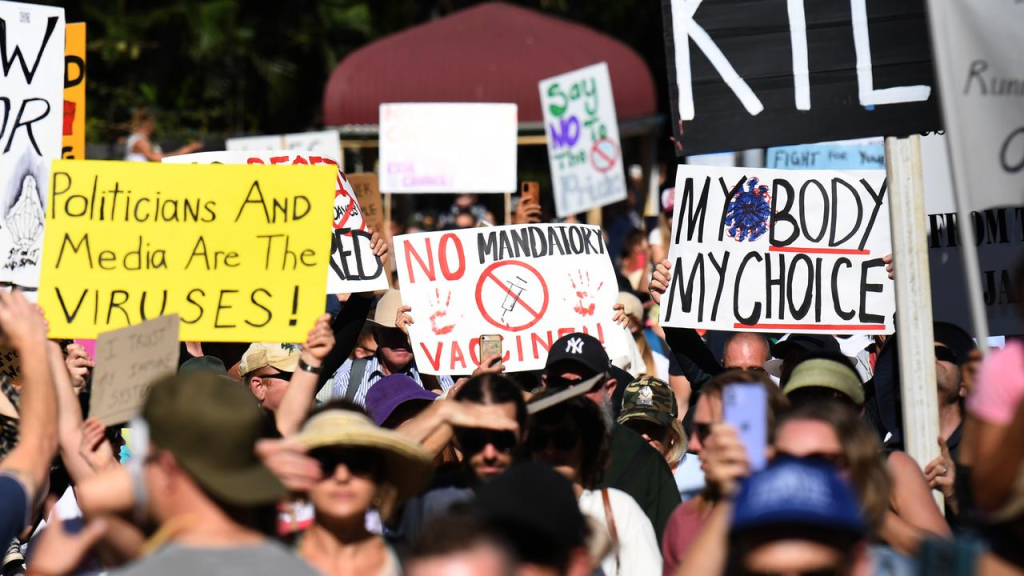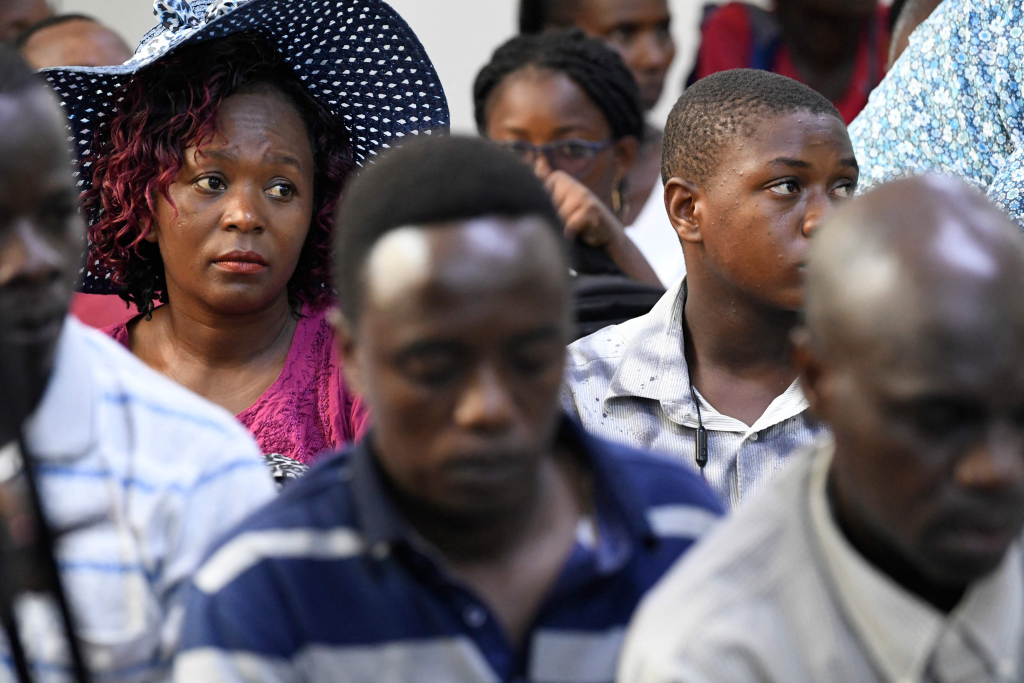Controversial Links Between an Australian Christian Group and a Kenyan Doomsday Cult
Controversial Links Between an Australian Christian Group and a Kenyan Doomsday Cult
In recent years, the controversial links between an Australian Christian group and a Kenyan doomsday cult have raised eyebrows and sparked intense debate. The connection between these two seemingly disparate groups has left many puzzled and curious about the underlying motivations and implications.
The Australian Christian group, known for its conservative beliefs and strong emphasis on evangelism, has been accused of providing financial support and ideological guidance to the Kenyan doomsday cult. This cult, led by a charismatic leader who claims to have divine revelations about the end of the world, has gained a significant following in Kenya and beyond.

In a shocking revelation, a parliamentary committee report in Kenya has claimed that an Australian religious group, known as the Voice in the Desert, influenced a Christian doomsday cult responsible for the deaths of over 400 people in Kenya. This report, tabled in the Kenyan Senate, has sparked a heated debate over the alleged connections between the two groups. In this article, we will delve into the details of this controversy, examining the claims, counterclaims, and the tragic events that unfolded in Kenya.
The Shakahola Massacre and the Voice in the Desert

The Shakahola massacre, which came to light in March, sent shockwaves through Kenya. The accused leader of the cult, Paul Nthenge Mackenzie, was found to have been influenced by Dave and Cherry McKay, founders of the Australian cult movement known as the Voice in the Desert. The parliamentary committee report states that Mackenzie’s connection with the McKay couple was established largely through virtual links and social media.
It is important to note that Dave McKay vehemently denies any direct contact with Mackenzie or his movement. According to McKay, his knowledge of Mackenzie was based solely on media reports and second-hand information from a member who attended Mackenzie’s meeting in Kenya in 2019. McKay disputes the relevance of his group’s links to the tragic events that unfolded in Kenya.
The Alleged Sermon and Anti-Government Sentiments

The parliamentary report highlights an “associate” of Dave McKay who delivered a sermon at Mackenzie’s Good News International church in 2019. This sermon is said to have echoed anti-government sentiments, particularly in relation to a national identification scheme called the Huduma Namba. The McKay associate reportedly labeled the Huduma Namba as “the mark of the beast.”
Dave McKay, in response to the allegations, acknowledges the sermon but claims that it was the extent of his group’s contact with Mackenzie. McKay asserts that their interest in Mackenzie was solely related to the Huduma Namba and its perceived connection to the mark of the beast.
The YouTube Video and the Mark of the Beast

In May 2019, a Facebook post by Times TV Kenya, run by Mackenzie, claimed that he had been released on bail after urging people not to register for the Huduma Namba. Dave McKay made comments under the post, expressing disappointment that Mackenzie had not been cleared in the case. McKay also linked to a now-deleted YouTube video titled “Kenyan government targets pastor over huduma 666 claim.”
A recording of a sermon delivered by the McKay associate at Mackenzie’s church was posted on YouTube. In the sermon, the associate discussed the supposed connections between the advent of a cashless society, the Huduma identification card, and “the mark of the beast.” The concept of the mark of the beast, mentioned in the book of Revelation, implies that a false prophet will be branded with a symbol of the antichrist.
The Tragedy Unfolds in the Shakahola Forest
Followers of Mackenzie’s Good News International Church were instructed to renounce their worldly possessions and move to the Shakahola forest, where they were isolated from their families. Once there, Mackenzie directed his followers to begin fasting in preparation for the end of the world and their supposed meeting with Jesus.
The parliamentary report reveals that those who disobeyed Mackenzie’s instructions were subjected to mock trials. To enforce his starvation doctrine, Mackenzie employed an armed gang, which violently attacked and killed followers who changed their minds about starving themselves to death. Children and lactating mothers were subjected to unimaginable
The controversy surrounding this unlikely alliance has prompted calls for greater scrutiny and regulation of religious organizations, particularly those involved in missionary work abroad. Questions have been raised about the responsibility of religious groups in ensuring that their actions align with ethical standards and do not contribute to harm or exploitation.
As the debate continues to unfold, it remains to be seen how this controversial link between an Australian Christian group and a Kenyan doomsday cult will ultimately be resolved. In the meantime, it serves as a reminder of the complex dynamics at play within religious communities and the need for critical examination of their actions and intentions.




